Submitted by WA Contents
arch out loud's competition winners propose multi-purpose stadium dealing with "waste" in Lagos
Nigeria Architecture News - Jan 24, 2019 - 05:53 15792 views
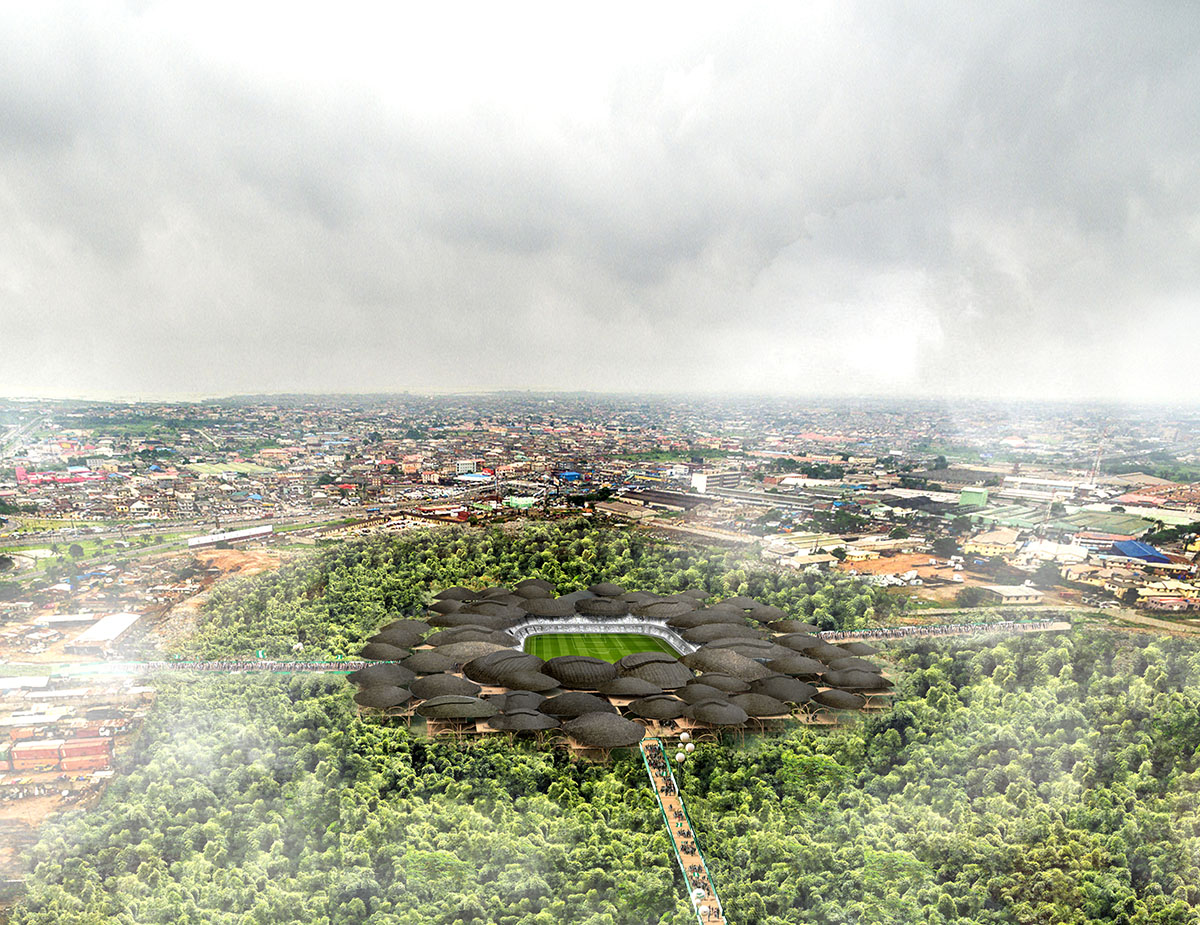
arch out loud has announced winners for its theme-based competition entitled "Waste: Multi-Purpose Stadium" stadium at the former Olusosun Landfill in Lagos, Nigeria.
In its latest speculative open ideas architecture competition, arch out loud challenged participants to design a new multi-purpose stadium at the former Olusosun Landfill in Lagos, Nigeria.
Waste is a global issue common to all urban areas. The world now creates more than a billion tons of garbage a year, which it incinerates, buries, exports, and recycles. As major cities expand so must their ability to reverse wasteful tendencies and begin living more efficiently and sustainably.
Until recently in Lagos, the Nigerian megalopolis handled its waste by relocation. It seemed simple enough to drive waste outside of town to the 100-acre Olusosun dump site beginning in 1992. Since then, Lagos is estimated to be the fastest growing metropolis in the world, expanding from a population of 7 million to over 21 million. The landfill that was once far from any urban activity is now surrounded by it. Earlier this year, the Olusosun Landfill was shut down by local government and slated for redevelopment as an urban green space and public park.

The new visions for this park that were submitted to the Waste Competition include anchor programs that incorporate new attitudes relating to waste and redefine how the stadium typology can serve its surrounding communities.
"WASTE (competition) may turn out to make its biggest contribution to the field by bringing together a set of documents that reveal how architecture is being shaped by and is responding to ecological thinking at the present moment. A preference for infrastructure over typology, landform over building form and systems over objects was evident throughout. Many projects also reflect a broad reconceptualization of building materials in relation to resources as opposed only to structural attributes," said Sylvia Lavin, WASTE Competition juror.
"Making the stadium an atomized system is a representation of the will to make architecture submissive to time and change, still one of the holy grail missions of the field," said Neil Denari, WASTE Competition juror.
The jury members selected one winner and three runner-ups from France, Spain, Australia and Russia. Jury members composed of: Neil Denari - Founder, Principal | Neil M. Denari Architects, Joshua Ramus - Founder, President | REX, Zeina Koreitem- Founder, MILLIØNS | Harvard GSD, Thom Moran- Founder, T + E + A + M | University of Michigan Taubman College, Tei Carpenter- Founder, Director, Agency-Agency | Columbia GSAPP, Ahmed ElHusseiny- Founder, AE Superlab, Olalekan Jeyifous- Artist/ Designer, Vigilism.com, Ola-dele Kuku - Architect/ Artist | Ola-dele Kuku Projects, Nate Appleman - Director of Sports + Recreation + Entertainment | HOK, Andrés Jaque - Founder | Office for Political Innovation, Oana Stanescu- Founder, Oana Stanescu Design Studio | Harvard GSD and Sylvia Lavin- Director of Critical Studies, PH.D., & M.A. | UCLA AUD.
Scroll down to see the winning projects:
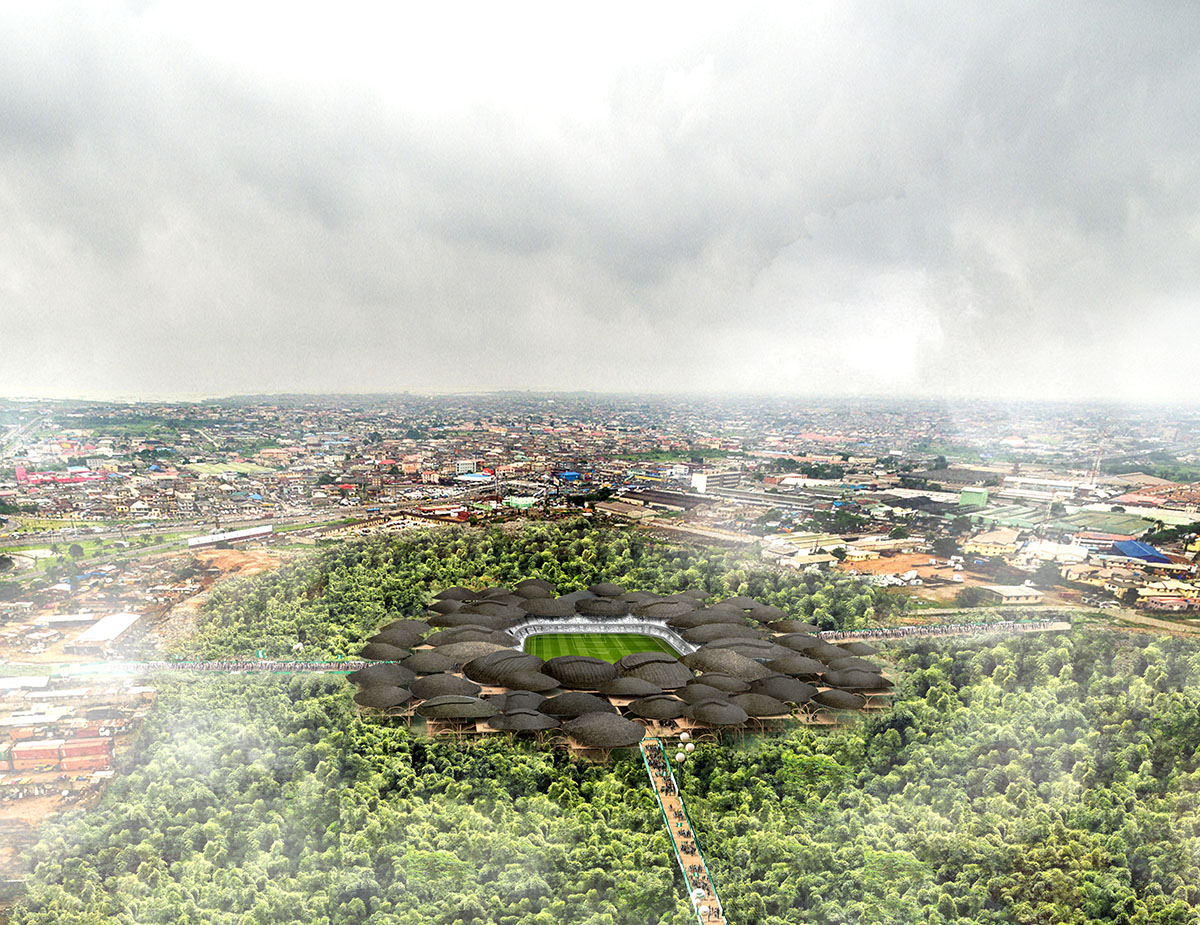
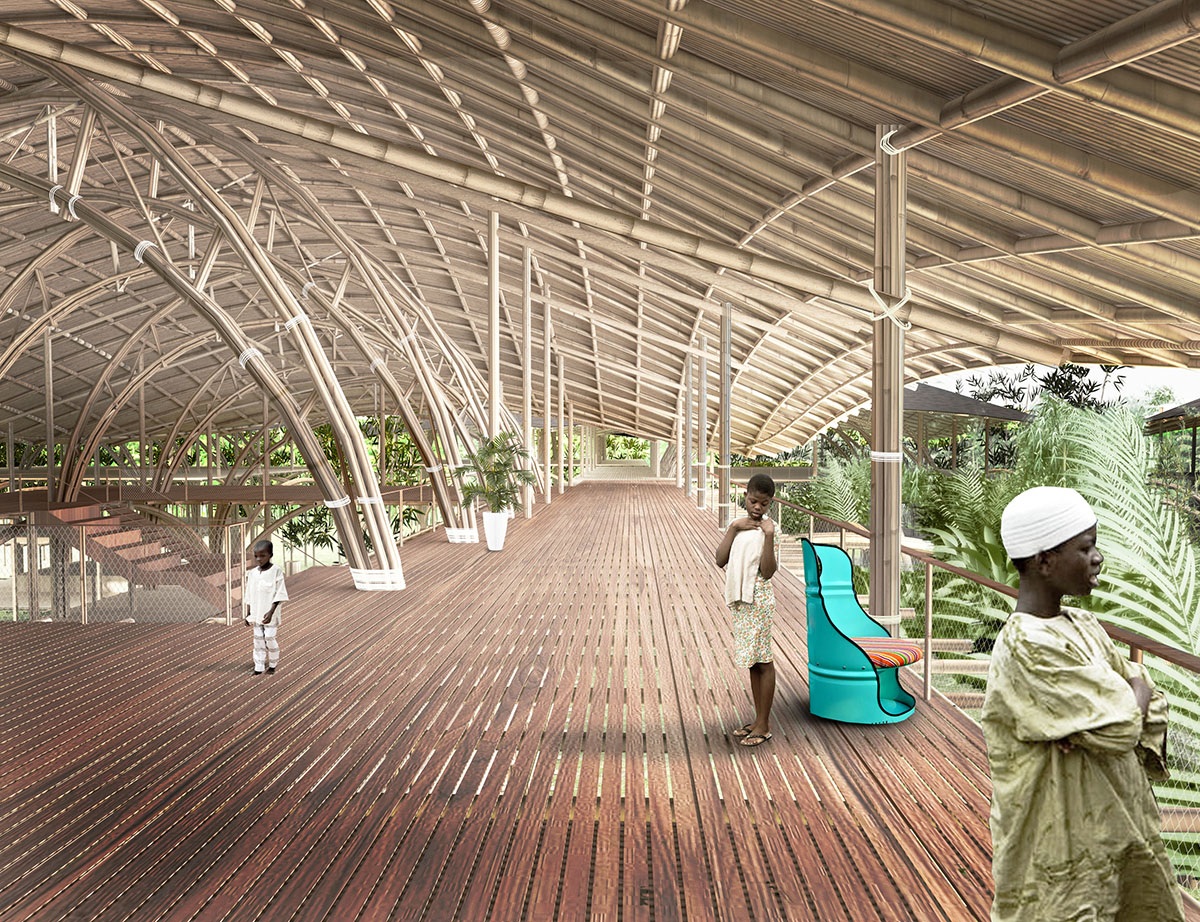
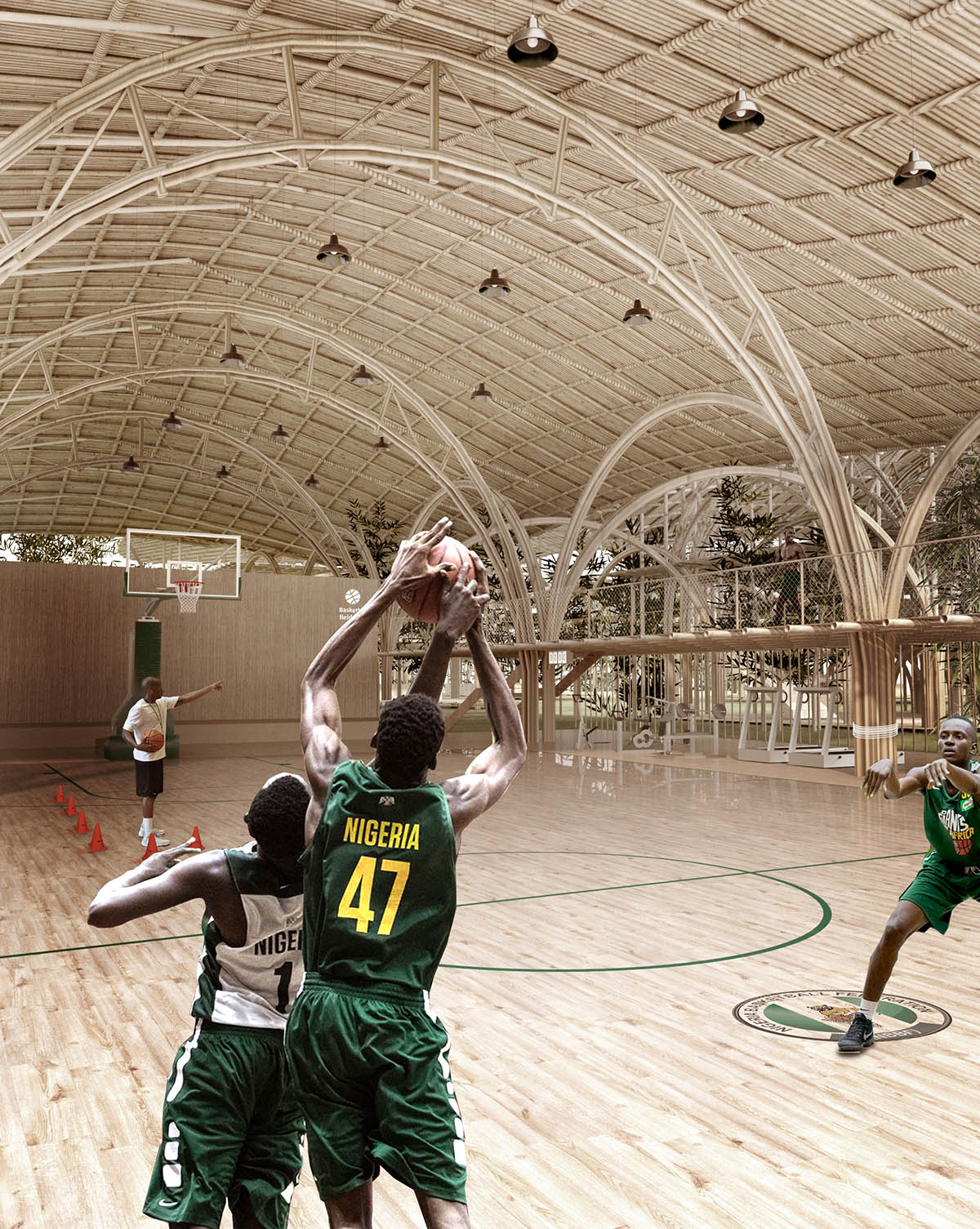
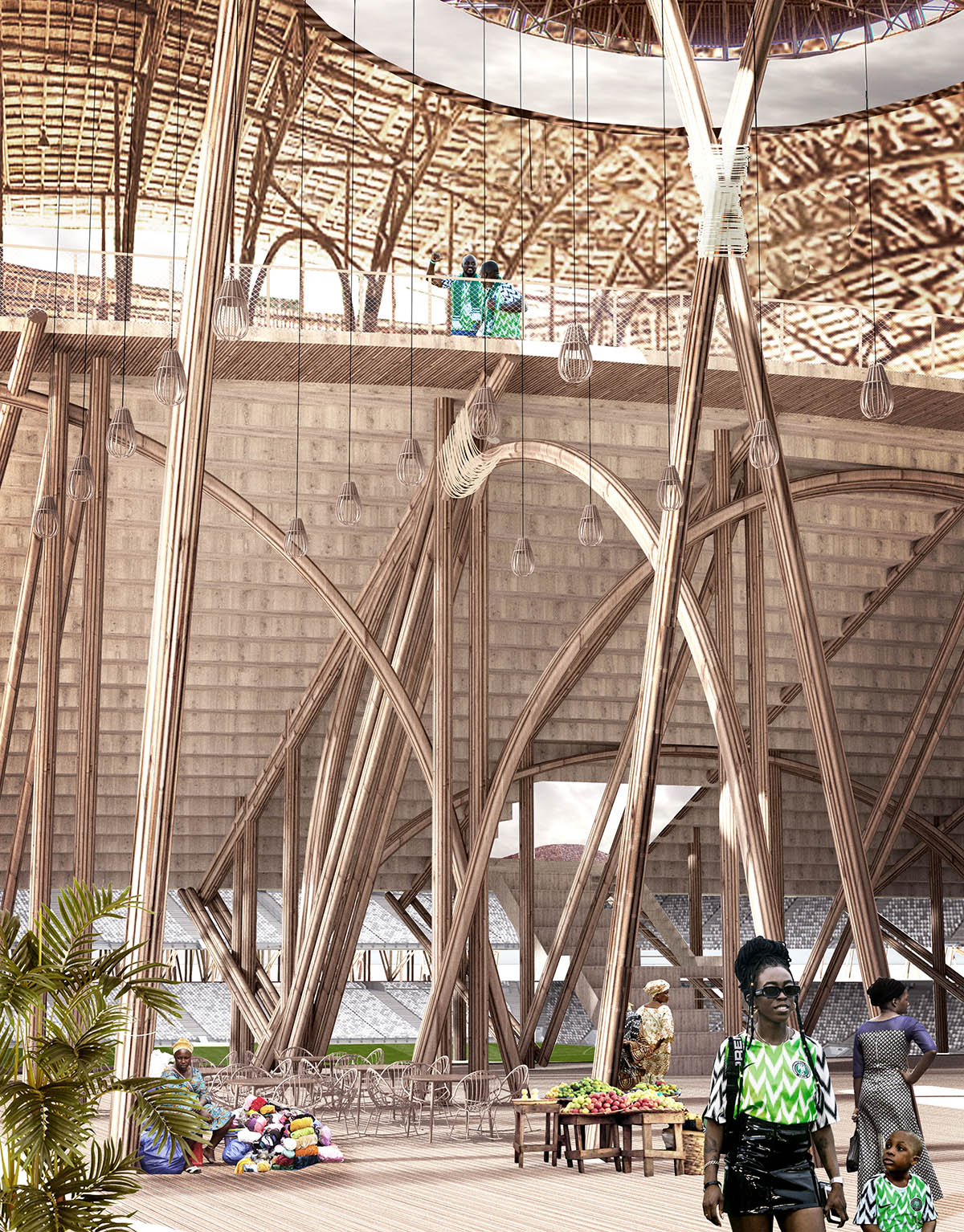
1st Place: Bamboo Stadium by Iulia Dorobanțu and Lucas Monnereau, ENSA Paris Belleville from Paris, France
The stadium is the natural meeting place for the neighborhood: an evolutive, flexible and transformable infinite bamboo based-unit structure. The bamboo seeded on the site becomes the local building material.
A mix of social spaces, dedicated to enjoying the sport on game days, as well as dwellings and local public programs, to be occupied all year by the local community, blend together in the small-scale system. The aggregation can grow in each direction to meet all needs of various situations, with a potential multiplication at the scale of the neighborhood or city.

Runner-up: Yoruba Waste Compound by Ernesto Urquizar Quesada & Maria Cervantes Lardon, School of Architecture of Granada from Granada, Spain
The urban paradox of Lagos is the starting point of our argument. The project is based on the Yoruba compound urban model; a central space protected by a perimetral circulation. In Lagos there are no typologies. The new non-stadium sinks into the former landfill enhancing the Landscape and facilitating the activity on the superior ring.
Inside this excavated void, a ramp crossed the tiers unwrapping them and creating an accessible promenade where new activity happen. A place where informal markets can occur as it grows on the cloverleaves of the big highways. Informal spaces between circulation that held spontaneous activity.
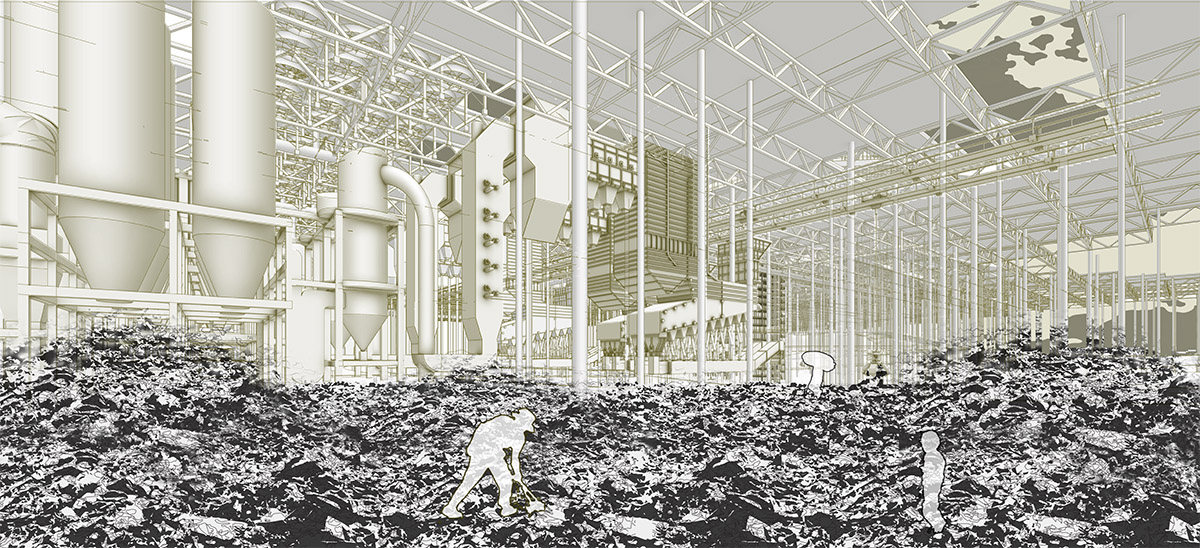
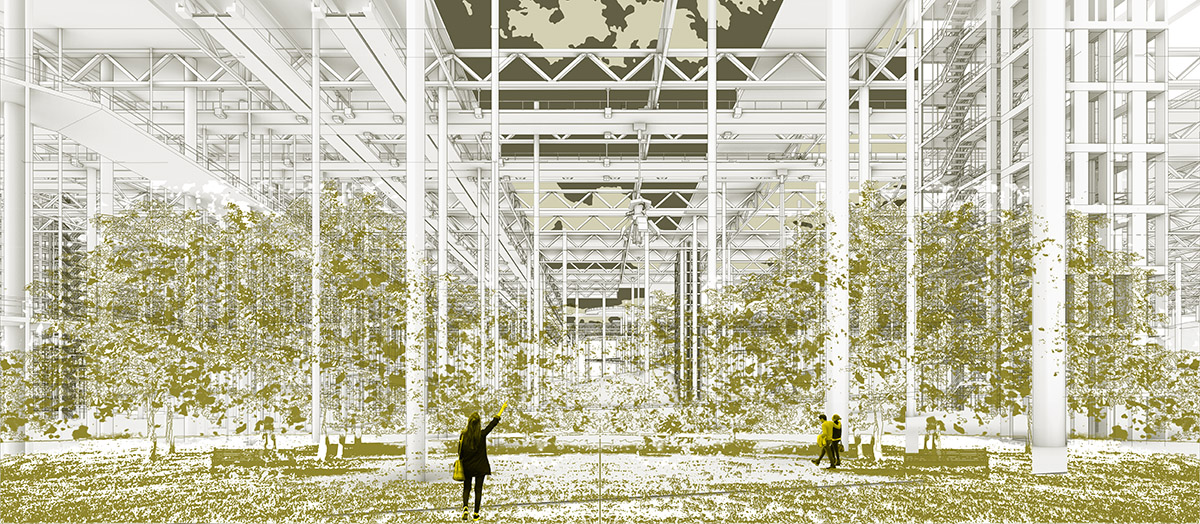

Runner-up: The Platform by Shengran Zheng, Yuxin Jiang, Yong Kiat Tan & Biqin Li, University of Melbourne from Melbourne, Australia
A long-term proposal for Olusosun Landfill, including 3 stages. In the first stage, the mega structure of the "Platform" and Waste to Energy System (WtE system) is built onto the landfill, which enables the construction of the stadium and waste-to-energy process to be conducted at the same time.
Waste resource could be reached under the "Platform" for generating energy and electricity for city of Lagos. In the second stage, stadium is built with movable structures on the "Platform" as an international football venue. The stadium is meant to be light weight and economical, and allow sunlight to penetrate through. In the third stage, waste on Olusosun landfill is all consumed and the WtE plant is transformed to community center and other space according to needs.
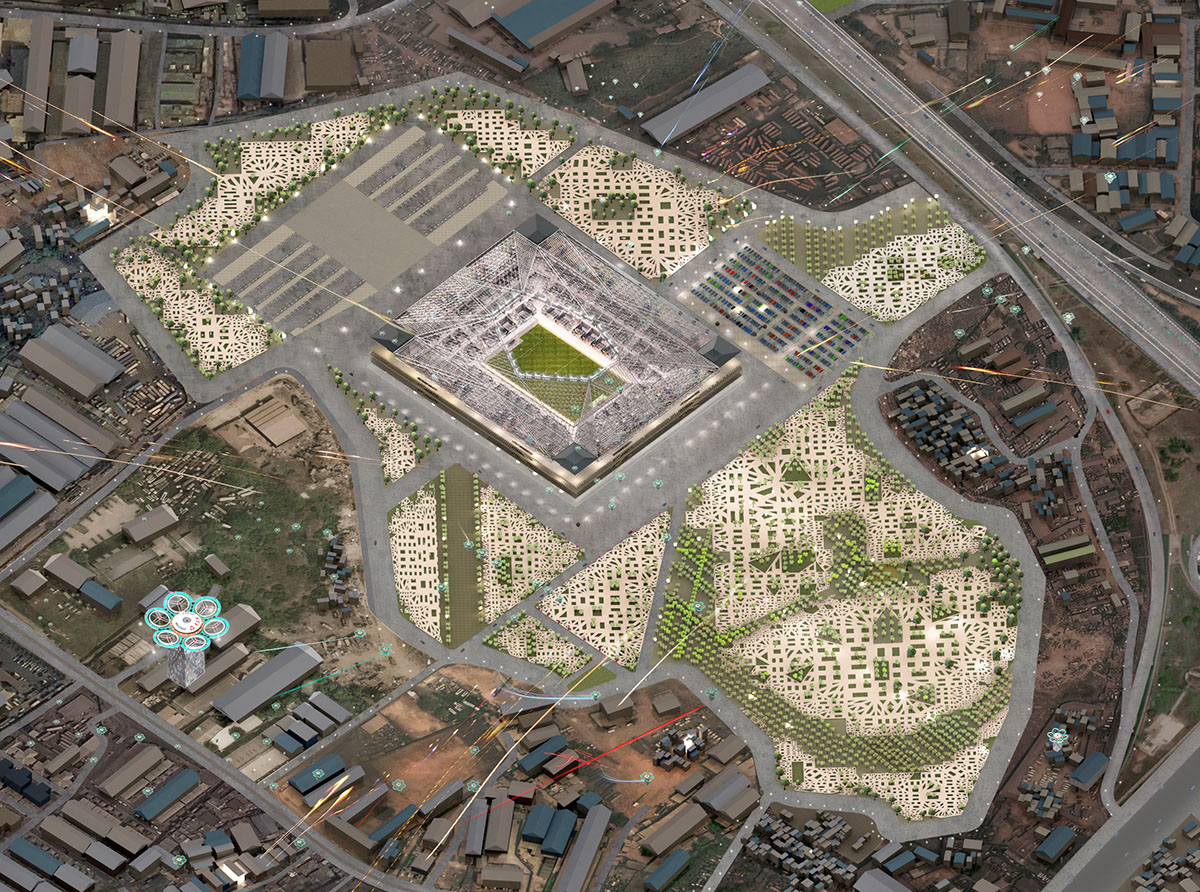
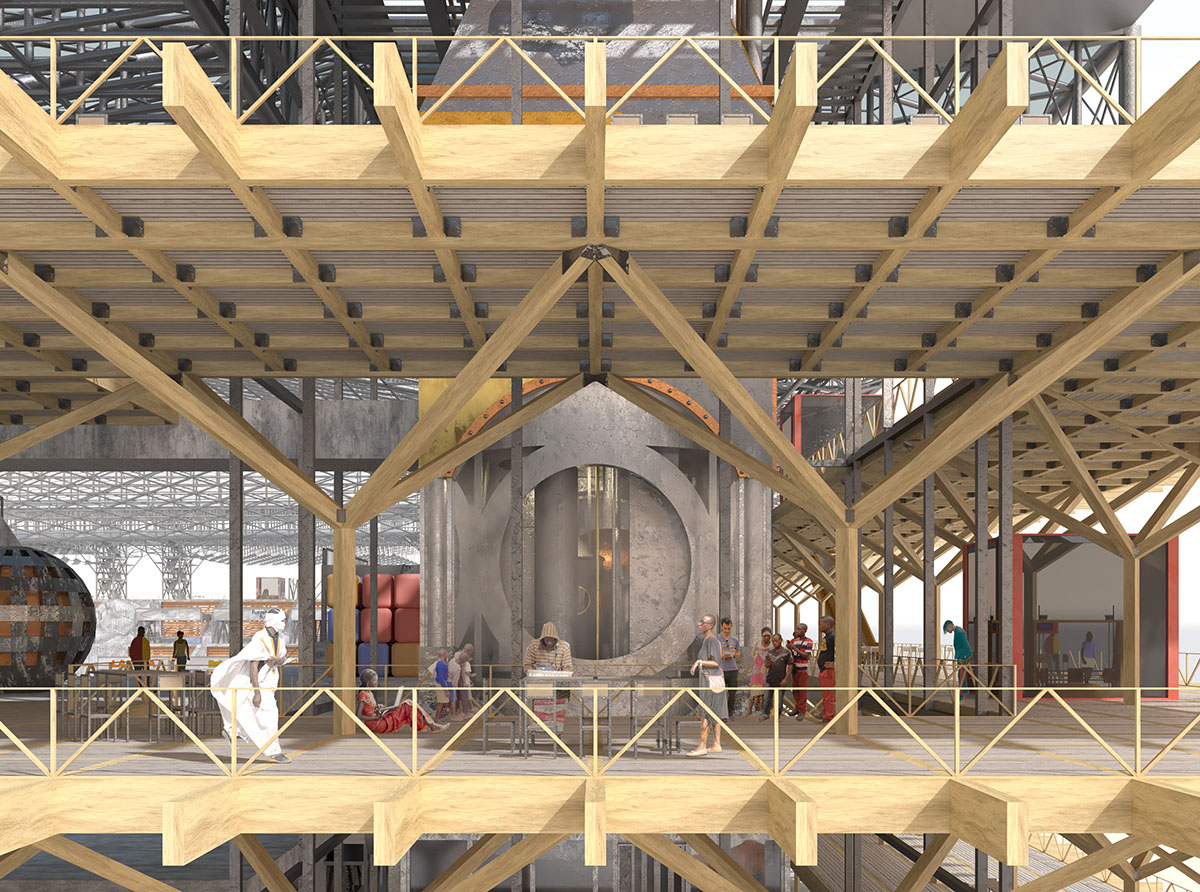
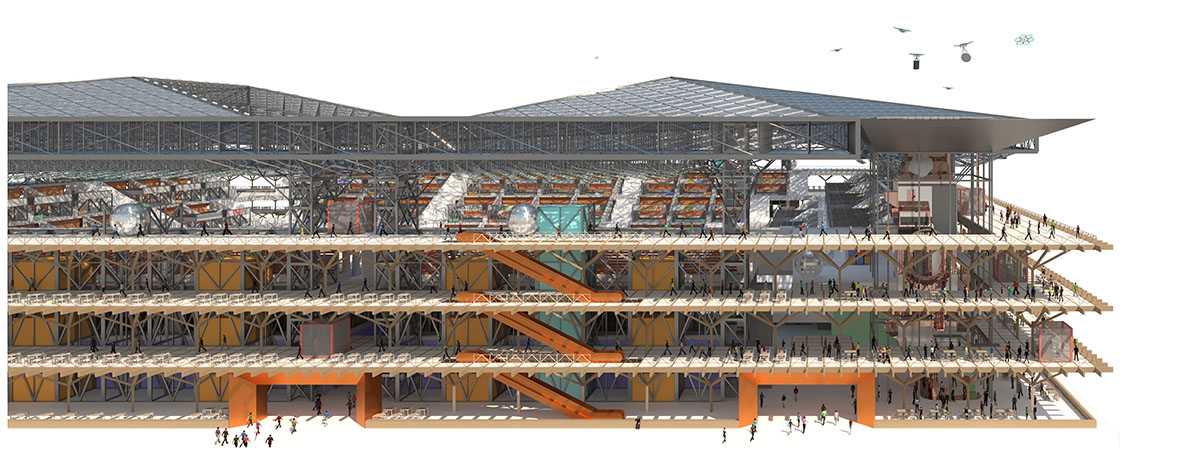
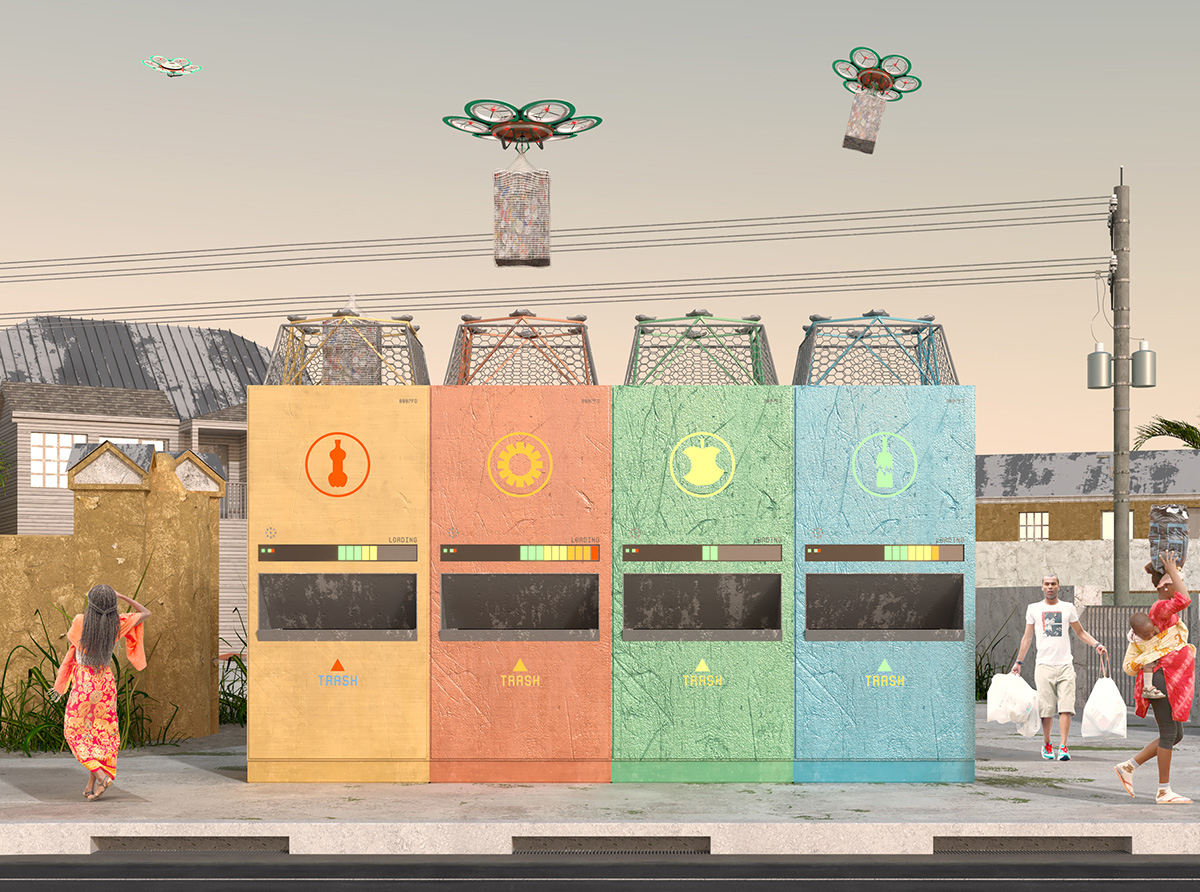
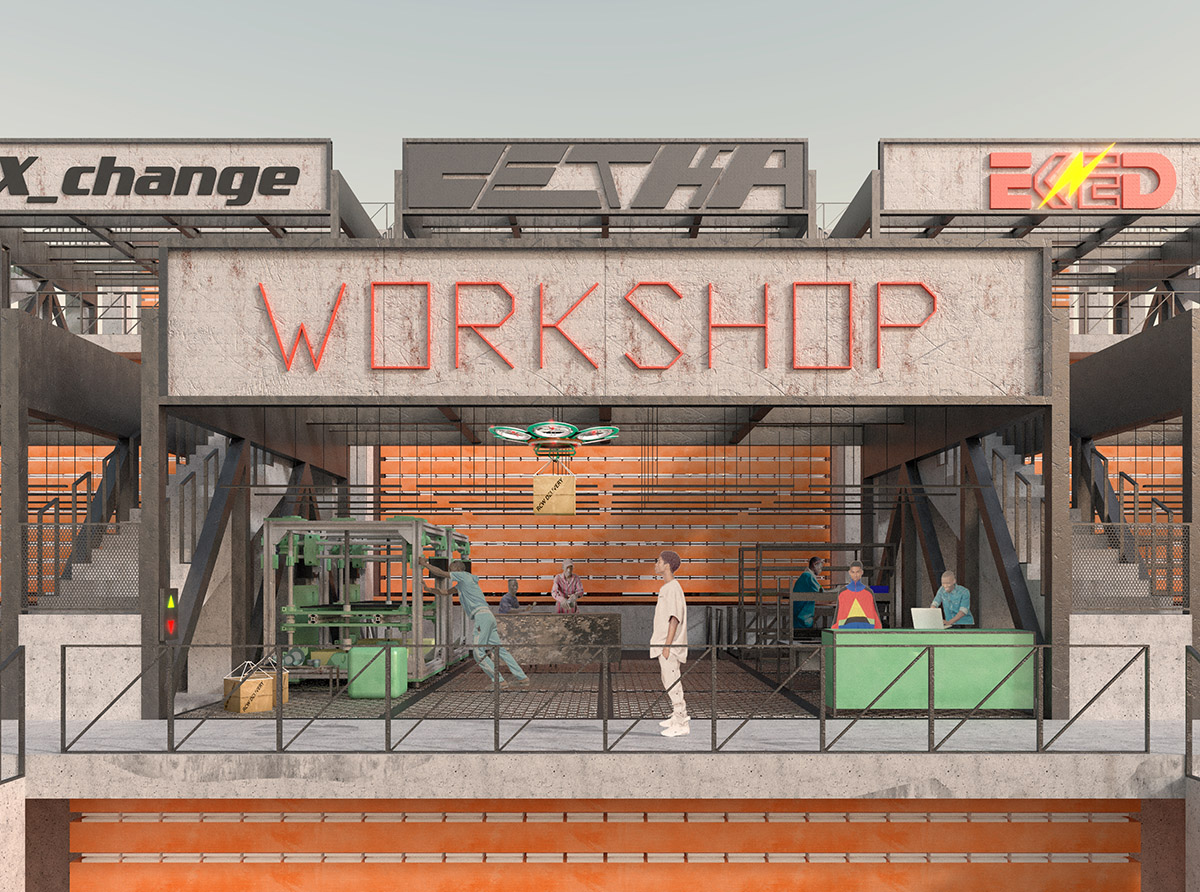
Runner-up: Recycle Cooperative Workshop by Vlad Kapustin, Stef Elitsa & Ivan Maximov from Moscow, Russia
In Lagos, people live close to garbage dumps, which immerse the city in deeper problems of ecology and pollution, moreover Lagos is the largest importer of dangerous garbage. Recycle Cooperative Workshop - is a membership-based association of people created to achieve common economic and social goals that meet the needs of Lagos.
The main idea of the project - garbage is a resource. It works as a hub for the production of items made of recycled waste. The Cooperative is a hybrid of a recycle plant, workshop, market, social center and stadium. People can unite, design and fabricate. Products are sold in the workshop market. The Cooperative can serve as an example and form a new attitude to garbage among people.
See 10 Honorable Mentions and detailed info about the projects on arch out loud's competition page. See the upcoming competitions on WAC Competitions Page.
All images courtesy of arch out loud
> via arch out loud
